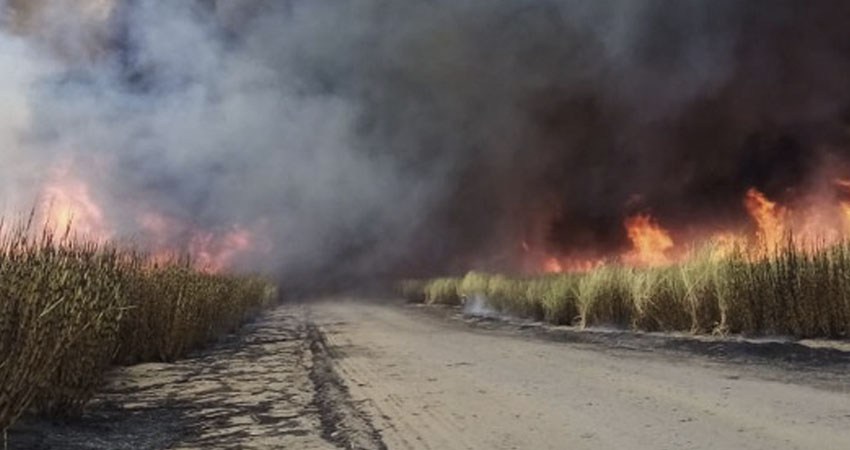A report from the nonprofit Oxfam says that Belgium's biofuel policy is violating human rights in Peru.
The report, titled “Fueling human rights violations: Consequences of EU and Belgium’s biofuel policies in northern Peru,” focuses on Belgium’s investment in a sugarcane plantation in the north of Peru, from which it purchases biofuels.
According to Oxfam, the people living in the Chira River valley where the plantation is located are being deprived of their land, cut off from their water and saddled with air pollution as a result of the plantation’s activities.
“An area the size of Brussels is being burned to fuel European cars,” Oxfam reported.
These recent findings tie in to earlier research from Oxfam regarding European countries using carbon removal schemes to claim net-zero climate change plans.
That research found that instead of making substantive changes to their own policies and behaviours in ways that would reduce their carbon footprint, countries were instead promising to “balance out” their impact by planting trees in other countries outside of Europe, mainly in South America.
In 2010, Belgium invested around €6.5 million in a sugarcane plantation in Peru that produces sugarcane ethanol, an alternative to fossil fuels.
“What the everyday motorist often does not know is that 97 percent of our consumption comes from 67 - often vulnerable - countries such as India, Thailand, Peru, North Korea, Costa Rica, Colombia, Honduras and Brazil,” Oxfam said.
“We cannot continue to disrupt ecosystems on the other side of the world to make Europe the first ‘green’ continent. Agrofuels can be harmful to the climate. Indeed, the production of a single liter of biofuel requires 2,500 liters of water, an ecological disaster. And it makes no sense to raze forests to produce fuel, because it will only cause more CO2 emissions than fossil fuels.”
But they say that’s exactly what’s taking place in Peru.
?? Volgens de Belgische overheid zijn #biobrandstoffen geen bedreiging voor de mensenrechten.@OxfamBE & @OxfamenPeru deden nochtans 1 casestudy in Peru en ontdekten dat ons biobrandstoffenbeleid een ramp betekende voor 40.000 Peruanen ???. @FODEconomie @be_gezondheid pic.twitter.com/fFaNp7Roxk
— OxfamBE ? (@OxfamBE) September 27, 2021
Translation: Belgian government says #biofuels are not a threat to human rights. @OxfamBE & @OxfamenPeru did 1 case study in Peru and found that our biofuel policy was a disaster for 40,000 Peruvians.
According to the report, an American multinational company became involved in the region, as well, purchasing the land on which the Belgian-backed sugarcane factory is located, and on which many Peruvian people lived and worked as small-scale farmers.
Without formal deeds to their land, these people were evicted after the purchase.
“Those who were able to stay were denied access to large tracts of forest that they used to graze their cattle,” Oxfam said.
“This practice is akin to land grabbing, considered a crime against humanity by the International Criminal Court.”
The local Peruvian authorities also gave that multinational company permission to use 2.5 million cubic metres of available water to irrigate the sugarcane crops.
“And this in a dry forest, already under water stress due to climate change,” Oxfam said.
“As a consequence, thousands of inhabitants of the region are asked to come to terms with a water shortage during the driest months of the year, just so that the sugar cane fields are not lacking in water.”
They say crop burning is also taking place, a process in which controlled fires are set in order to clear fields.
Oxfam says many residents told them they’ve suffered from lung diseases since the arrival of the sugarcane plantation.
“The ash gets into our houses, even when we close the windows,” one resident told them.
“Every morning, the courtyard of the village primary school is covered with ash. The children are therefore at risk of breathing foul air.”
Oxfam said that alternative fuel sources have a vital role to play when it comes to the priorities of the European Union’s Green Deal, but that demand for first generation biofuels “has fuelled social, political and environmental problems.”

Image from Oxfam
The nonprofit also noted that promised employment opportunities for the local workforce haven’t materialised: only 0.3 percent of the local workforce works on the sugarcane plantations, and that the salaries and working conditions are poor.
They’re calling on Belgium to “establish strong and legally binding social guarantees for its energy market” and completely ban biofuels.
“Belgium must stop pumping the planet with agrofuels,” said Oxfam.

